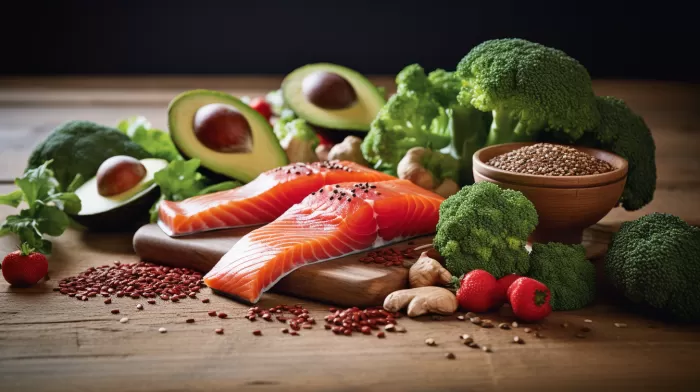Spring is here, and millions of people are suffering from seasonal allergies. When pollen counts rise, so does the number of people experiencing symptoms like sinus infections, upper respiratory problems, headaches, brain fog, and lethargy. It’s not just pollen in the air that’s causing problems; food allergies and sensitivities can also trigger similar symptoms. In fact, research has found a clear link between gut health, immunity, and allergic symptoms.
If you’re struggling with seasonal allergies, it’s crucial to look at your digestive system. Eating the right foods and taking the right supplements can help regulate your immune system, control chronic inflammation, reduce hyper-reactivity, and soothe irritated mucosal tissues. Here are some of the best food and supplement options to help alleviate seasonal allergies:
Flavonoid-Rich Foods
Flavonoids are powerful phytonutrients that offer numerous immune benefits, particularly against allergies, cancer, and viruses. Quercetin, one of the most important flavonoids for allergies, can help control and regulate histamine release—the primary chemical produced by the body during allergic reactions. Foods high in quercetin include:
- Red onion
- Watercress
- Dill
- Kale
- Apples
- Berries
- Red wine
- Capers
Mushrooms
These fungi pack some serious therapeutic punch when it comes to allergy support. Both culinary and medicinal mushrooms are rich in phytonutrients, including selenium and vitamin D, which strengthen immunity, fight inflammation, and reduce allergy reactions. Furthermore, medicinal mushrooms like reishi and maitake help modulate and train the immune system to function optimally. For more information on the immune-boosting benefits of mushrooms, check out this immune wellness guide.
Omega-3 Foods
Eating a diet rich in healthy omega-3 oils can reduce the risk of allergies, thanks to their potent anti-inflammatory properties and immune-boosting effects. Some excellent sources of omega-3 fatty acids include wild salmon, flax, hemp seed, grass-fed meat, and sardines and other oily fish.
Leafy and Cruciferous Vegetables
A seasonal cleanse and detox program, which often involves a nutrient-dense, detoxifying diet, offers relief for many people with seasonal allergies. This is because this type of program eliminates inflammation-inducing foods, helps heal the digestive system, and restores balance to the immune system. Dark leafy greens like collards, kale, dandelion, mustard, chard, parsley and cilantro reduce inflammation and provide antioxidant support, while cruciferous vegetables like broccoli, cauliflower, brussels sprouts, and cabbage help knock out inflammation, detoxify the body, and combat free radicals.
Vitamin C Foods
Vitamin C offers a host of essential health benefits, including immune support, anti-inflammatory and antioxidant effects, and antihistamine abilities. Foods high in vitamin C include:
- Strawberries
- Broccoli
- Brussels sprouts
- Papaya
- Peppers
- Citrus fruits
Foods High in Magnesium, Selenium, and Zinc
These three minerals provide long-term support against allergies by promoting healthy immune activity, reducing inflammation, and repairing tissue. Excellent sources of selenium and magnesium include sunflower seeds and Brazil nuts, while pumpkin seeds and dark chocolate provide abundant zinc.
When supplementing with these minerals, it’s crucial to choose food-based sources for optimal absorption.
Holistic Approaches
In addition to adjusting your diet, consider incorporating mind-body relaxation techniques like meditation and yoga, as well as acupuncture, which has been proven effective for treating allergies like hay fever. Instead of relying on prescription and over-the-counter drugs to suppress allergic reactions, treat seasonal allergies through these holistic methods. In the process, you’ll boost your overall health and vitality, ensuring you enjoy the beauty of spring and summer to its fullest.
For more health and wellness information, visit www.dreliaz.org.



